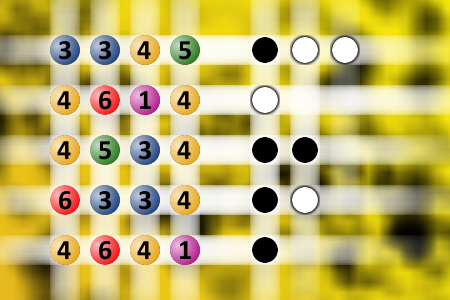Find the right combination
The computer chose a secret code (sequence of 4 digits from 1 to 6). Your goal is to find that code. Black circles indicate the number of hits on the right spot. White circles indicate the number of hits on the wrong spot.
Grandma's boyfriend
A 5-year old boy went to visit his grandmother one day. While playing with his toys in her bedroom while grandma was dusting furniture, he looked up and said, "Grandma, how come you don't have a boyfriend?"
Grandma replied, "Honey, my TV is my boyfriend. I can set in my bedroom and watch it all day long. The TV evangelists keep me company and make me feel so good.The comedies make me laugh. I'm so happy with my TV as my boyfriend." Grandma turned on the TV and the picture was horrible. She started adjusting the knobs trying to get the picture in focus. Frustrated, she started hitting on the backside of the TV hoping to fix the problem.
The little boy heard the doorbell ring so he hurried to open the door.When he opened the door, there stood Grandma's minister. The minister said, "Hello son is your grandma home?"
The little boy replied, "Yeah, she's in the bedroom bangin' her boyfriend."

